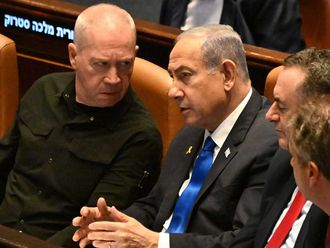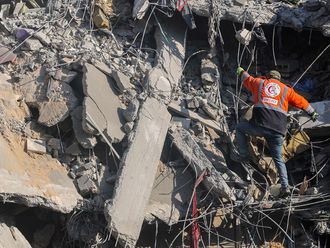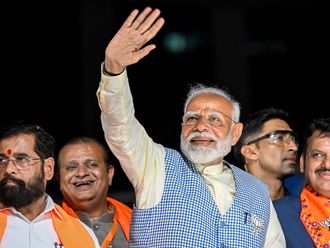Nawaz Sharif, who was prime minister in 1990 and 1997, was ousted in a military coup on October 12, 1999 by his military chief General Pervez Musharraf, who jailed him for 14 months, seven of them in solitary.
He and his family were allowed to travel to Saudi Arabia after the Custodian of the Two Holy Mosques King Abdullah Bin Abdul Aziz stepped in and secured his release.
How and why did the self-exile to Saudi Arabia happen? "Then Crown Prince Abdullah called Musharraf and told him he was unhappy with what they were doing to me and offered to take me to Saudi Arabia. Maybe it was also because my wife Kulsoom and my daughter were making such strong statements. They surprised me."
Musharraf's coup came after Sharif replaced the army chief with General Khwaja Ziauddin on the day he was returning from a tour of Sri Lanka.
Sharif admits that although he may have wanted to, he could not have sacked Musharraf after Kargil when the country was in the middle of a near war with India.
"I thought about appointing a commission of inquiry but put it off because I could not decide on what was the right thing to do. If I ever go back, it is something that should happen. There should be accountability."
Speaking of the trauma of his incarceration at Attock fort where he was held in solitary confinement for seven months in a cell crawling with snakes, he said, "It was used to jail a traitor by a Mughal ruler 450 years ago and it was used to jail me, a lawfully elected prime minister of Pakistan, a loyal son. I am not a traitor."
Sharif was moved to four locations in those 14 months, the last to a six foot by four foot freezing cell without even a skylight in Attock jail.
"I would knock on the door, it would open just enough for me to see a man's eye and part of his nose. I would ask for water and it would be pushed through, and that would be the only human contact for 24 hours."
Once every few days, they would allow him a walk in the courtyard. He says the Almighty gave him strength to deal with the situation.
"I drew strength from God and the conviction that I was fighting injustice. As prime minister, I have the right to sack or appoint the chief of the army, I have the right to sack or appoint every single officer upwards from the rank of Major. I had every right to sack General Musharraf. He had no right to arrest or detain me."
Sharif said neither he nor Benazir Bhutto interfered in the day-to-day running of the army.
"The army's role is to defend the country, not interfere in civilian affairs. The minute one chief of army staff did, by calling for a National Security Council, I asked for his resignation. But to this day I have deep respect for General Jehangir Karamat. He is a gentleman."










